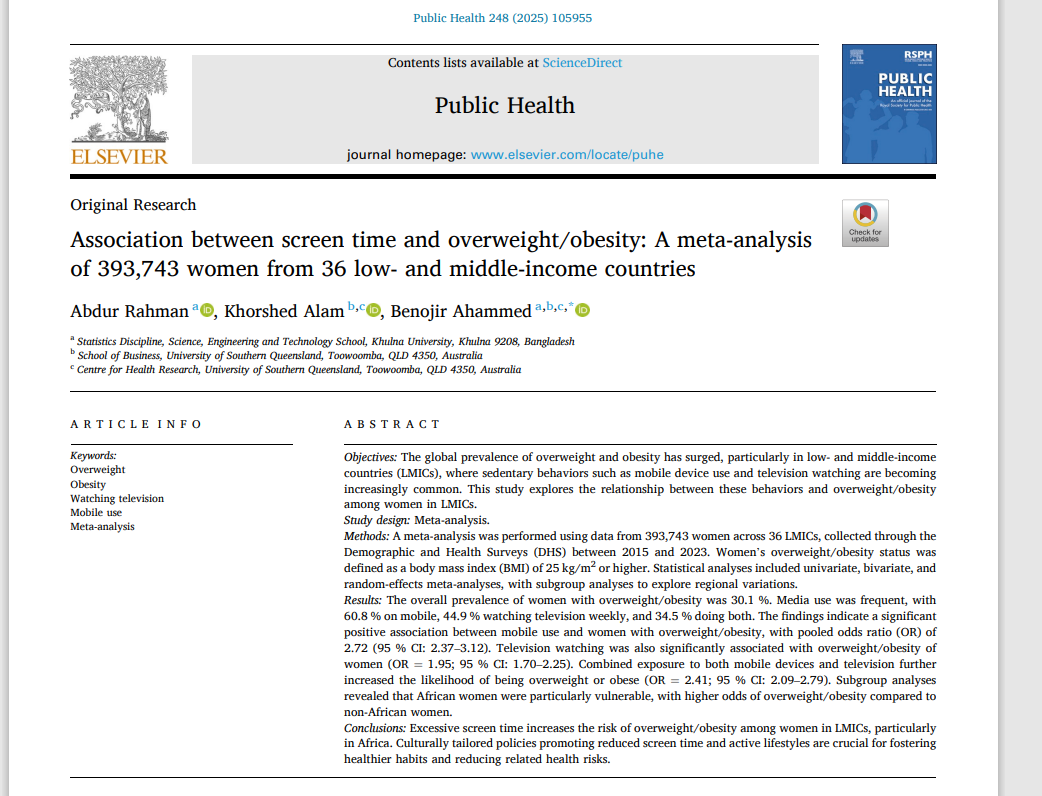
Association between screen time and overweight/obesity: A meta-analysis of 393,743 women from 36 low- and middle-income countries
Author:- Abdur Rahman; Khorshed Alam; Benojir Ahammed
Category:- Journal; Year:- 2025
Discipline:- Statistics Discipline
School:- Science, Engineering & Technology School
Category:- Journal; Year:- 2025
Discipline:- Statistics Discipline
School:- Science, Engineering & Technology School
Abstract
Objectives
The global prevalence of overweight and obesity has surged, particularly in low- and middle-income countries (LMICs), where sedentary behaviors such as mobile device use and television watching are becoming increasingly common. This study explores the relationship between these behaviors and overweight/obesity among women in LMICs.
Study design
Meta-analysis.
Methods
A meta-analysis was performed using data from 393,743 women across 36 LMICs, collected through the Demographic and Health Surveys (DHS) between 2015 and 2023. Women's overweight/obesity status was defined as a body mass index (BMI) of 25 kg/m2 or higher. Statistical analyses included univariate, bivariate, and random-effects meta-analyses, with subgroup analyses to explore regional variations.
Results
The overall prevalence of women with overweight/obesity was 30.1 %. Media use was frequent, with 60.8 % on mobile, 44.9 % watching television weekly, and 34.5 % doing both. The findings indicate a significant positive association between mobile use and women with overweight/obesity, with pooled odds ratio (OR) of 2.72 (95 % CI: 2.37–3.12). Television watching was also significantly associated with overweight/obesity of women (OR = 1.95; 95 % CI: 1.70–2.25). Combined exposure to both mobile devices and television further increased the likelihood of being overweight or obese (OR = 2.41; 95 % CI: 2.09–2.79). Subgroup analyses revealed that African women were particularly vulnerable, with higher odds of overweight/obesity compared to non-African women.
Conclusions
Excessive screen time increases the risk of overweight/obesity among women in LMICs, particularly in Africa. Culturally tailored policies promoting reduced screen time and active lifestyles are crucial for fostering healthier habits and reducing related health risks.
